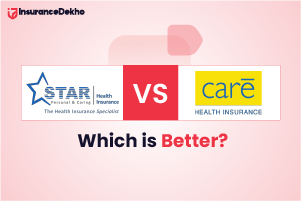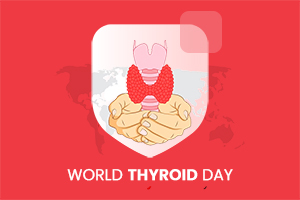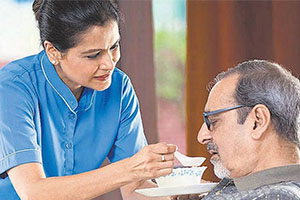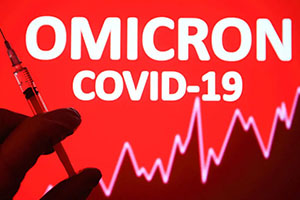

- Tax BenefitUp to 75000**
- Claim SupportEveryday 10AM-7PM
- 45 Lacs+Happy Customers
*Standard Terms and Conditions Apply.
**Tax benefits are subject to changes in Income Tax Act.
Tax Saving Options with Health Insurance
Health insurance plans are a boon in not only reimbursing medical expenses but also serving as an effective tax-saving tool. The policyholders are eligible for a substantial tax deduction on the health insurance premiums paid to buy health insurance plans under Section 80D of the Income Tax Act of 1961. Whether self-employed or salaried, the policyholders can avail of tax benefits under the Income Tax Act. On availing of medical insurance tax benefits, policyholders are given the advantage of both health coverage and tax deductions.
There are tax benefits available for every health insurance policy, regardless of whether it belongs to the proposer, his or her spouse, children, or parents. However, when buying health insurance for parents, don’t just look for higher tax benefits but also avail coverage for the maximum medical conditions. This will help in getting the most suitable health insurance policy.
Tax Saving Options with Health Insurance
As per Section 80D of the Income Tax Act, the premium paid for a health insurance policy is deductible from the taxable income. The upper limit for the deductible amount is Rs. 25,000 and can be extended to up to Rs. 50,000 for senior citizens. This implies that the policyholder is now eligible to enjoy a deduction of up to Rs. 75,000 from the taxable income. In rare cases, when the age of both the proposer and his parents is more than 60 years, the deductible amount can extend up to Rs. 1,00,000 (Rs. 50,000+Rs. 50,000).
Deduction on Preventive Medical Checkups
You can save tax on preventive health checkups on a yearly basis. Under this feature, you can claim a maximum amount of Rs. 5,000.
Save Income Tax for Health Insurance Premiums Paid for Parents under Section 80D
Every financial year, you are eligible to avail of a tax exemption of up to Rs. 25,000 on the guardian premium you pay. Adding to it, if your parents are senior citizens, the maximum limit even rises to Rs. 50,000 every year. The limit additionally comprises Rs. 5,000 towards annual health checkups of your parents.
Different Scenarios to Save Tax Under Section 80D
Scenarios indicating eligibility and deduction for saving tax under Section 80D:
1. You and your parents below 60 years - Up to Rs. 25,000 claims allowed for self, family, and children. An additional Rs. 25,000 claims are allowed against the premium paid for parents. Total amount = Rs. 50,000.
2. You and your family below 60, but parents above 60 years - Up to Rs. 25,000 claims allowed against the premium paid for self, family, and children. An additional Rs. 50,000 claim amount for the premium paid for parents. Total amount = Rs. 75,000.
3. For your parents above 60 years, you and your family - Up to Rs. 50,000 claims against the premium paid for self, family, and children. Moreover, up to Rs. 50,000 claim amount for the premium paid for parents. Total amount = Rs. 1,00,000.
4. HUF (Hindu Undivided Family) - Up to Rs. 25,000 (premium paid for self, family, and children) and up to Rs. 25,000 (premium paid for parents) can be claimed. Total amount = Rs. 25,000 as tax benefits for parents available only if they are senior citizens.
5. Non-resident individual - Up to Rs. 25,000 claim amount for premium for self, family, and children. Parents are considered for tax benefits only if they are senior citizens. Thus, the total amount = Rs. 25,000
Income Tax Saving for Senior Citizens
The following tax exemption under Section 80D is available to senior citizens (60 years or older, but less than 80 years of age).
- Claim deduction of up to Rs. 50,000 allowed on medical insurance premiums during every fiscal year
- Rs.1 Lakh for medical treatment of particular critical illnesses
- If a super-aged father lacks insurance and the mother is a senior citizen, a tax deduction of Rs. 50,000 can be claimed.
To help you understand the concept better, the same has been tabulated below:
|
Situations |
Premium Paid |
Deduction under Section 80D of the Income Tax Act |
|
|
Self, Family, Children |
Parents |
||
|
When the policyholder and parents are aged below 60 years |
Rs. 25,000 |
Rs. 25,000 |
Rs. 50,000 |
|
When the policyholder and family members are aged below 60 years with parents aged above 60 years |
Rs. 25,000 |
Rs. 50,000 |
Rs. 75,000 |
|
When the policyholder, family members, and parents are more than 60 years of age |
Rs. 50,000 |
Rs. 50,000 |
Rs. 1,00,000 |
|
Members of the HUF (Hindu Undivided Family) |
Rs. 25,000 |
Rs. 25,000 |
Rs. 25,000 |
|
Non-Resident Individuals (NRIs) |
Rs. 25,000 |
Rs. 25,000 |
Rs. 25,000 |
Documents Required to Claim Income Tax Deduction
There are certain documents that you need to submit to obtain an income tax deduction which include your premium payment receipt and a copy of your insurance policy, which must include the names of your family members, their ages, and their connection to you. In case the premium is paid for parents, then you as the proposer must ask for an 80D certificate from the health insurance company, which will require you to provide the payment details in your name.
How to File Income Tax Returns with a Health Insurance Plan?
You can file income tax returns in a few simple steps as listed below:
- First, visit the official website of Income Tax
- Click on the ‘e-file section’ and go to ‘Income Tax Return’
- Next, you need to select the assessment year and the right ITR form
- Under ‘filing type’, click on ‘original/revised return’ and submit the form online
- Also, verify all the details entered by you and click on ‘continue’
- Finally, upload your digital signature and click on the ‘submit’ button’
Are Tax Benefits Available in Both Indemnity Health Insurance Plans And Fixed Benefits Health Insurance Plans?
A number of health insurance plans are available on the market, but the most common is indemnity health insurance, which pays actual hospitalisation expenses incurred during treatment. Fixed benefit health insurance plans, on the other hand, pay you a lump sum amount that you can use as you see fit.For instance, critical illness plans pay you a lump sum on the diagnosis of the listed critical illnesses. The good news is that you can avail of tax benefits on the premium paid for both these plans.
Whether you pay a premium for an indemnity-based health insurance policy like individual health insurance, family health insurance, senior citizen health insurance policy, or a benefit-based health insurance policy like daily hospital cash, critical illness policy, etc., you can get the same amount of tax benefits. You can avail of tax benefits under Sec 80D of the Income Tax Act, 1961. Also, you can add riders to your health insurance policy by paying an extra premium, on which you can avail of tax benefits under Section 80D.
Tax Benefits on a Multi-Year Health Insurance Policy
People who wish to buy multi-year health insurance plans can now avail of dual benefits of getting discounts on premiums as well as tax benefits on a pro-rata basis. In the case of multi-year health insurance policies, you can avail of tax benefits in a proportionate way over the years for which the policy has been purchased. For instance, if you have paid a premium of Rs. 30,000 for a 3-year health insurance policy, then you can avail of a tax benefit of Rs. 10,000.
The benefit of a multi-year health insurance policy is not just limited to those mentioned above but also because the premium for them remains fixed during the policy period. This implies you do not have to worry about a premium increase in the coming years. You must pay the premium all at once, which saves you stress for the rest of the policy term.
What to Look For When Buying a Health Insurance Policy?
Health insurance plans alongside providing tax benefits also cover you for a wide range of medical contingencies, hence, it becomes imperative to choose your health insurance policy that is offered by a reliable insurance company. Currently, a few popular insurance companies offering health insurance plans in India are Care Health Insurance, Bajaj Allianz General Insurance Company, IFFCO Tokio General Insurance Company, Aditya Birla Health Insurance, and Niva Bupa Health Insurance. In recent years, insurance companies have come up with new strategies and varied their policies according to the needs thus allowing people to purchase health insurance at affordable costs. Individual health insurance plans, family floater health insurance plans, senior citizens health insurance plans, critical illness health insurance plans, disease-specific health insurance plans, and so on are available from the companies. Furthermore, there are certain features that you must take care of before buying a health insurance policy, some of which have been enumerated in the section below:
- Network hospitals: The more network hospitals an insurance company has, the more cashless options for treatment you will have. As a result, it is critical to examine the network hospital list and limit which ones you would go to in an emergency.
- Claim settlement process: It is important to check the claim settlement process when shortlisting a health insurance company if you want a smooth and hassle-free claim settlement in an emergency situation.
- Coverage benefits: Check that the health insurance policy covers you for maximum coverage benefits at an affordable premium. These include in-patient hospitalisation expenses, pre-hospitalisation and post-hospitalisation expenses, daycare expenses, road ambulance expenses, organ donor expenses, etc.
- Customer care: It is critical to determine whether the insurance company has a strong customer service team that answers rapidly to customer requests.
Insurance companies are determined to ensure that your money is worth it at every stage. This also gets a boost with tax benefits under Section 80D tax deduction. You can also use InsuranceDekho’s health insurance premium calculator to get an estimate of the health insurance premium to be paid, for a particular health insurance plan. This will help you plan finances as well as get an idea of tax benefits that you will be able to avail of under a particular policy.
Important Points to Remember
Following are the points that you should not forget to consider in order to avail tax benefits under Section 80D of the Income Tax Act, 1961, under health insurance plans:
- Carefully read the terms and conditions related to tax exemption under your health insurance policy.
- Avoid paying health insurance premiums in cash to avail of tax deductions. You should always pay the health insurance premium through credit cards, debit cards, or any online payment gateway to get 80D tax benefits.
- In case you buy a health insurance policy for yourself and your parents, and all of you are senior citizens, then the maximum deduction under Section 80D can be availed of Rs. 1 Lakh.
- Benefits under Section 80D deduction can be availed in addition to tax breaks of up to Rs. 1.5 Lakh in Section 80C.
All in all, there is no doubt that health insurance plans are one of the most effective ways of saving taxes as well as protecting your savings from being wasted on medical expenses. They also help you reduce your tax bill by allowing you to deduct up to Rs. 1 lakh from your taxable income under Section 80D of the Income Tax Act, 1961. So, it is recommended to timely buy a health insurance policy to have a healthy and secure future.
Health Insurance Calculator
Whom do you want the insurance for ?
Where do you live ?
Choose required Coverage for yourself?
Buy Coronavirus Health Insurance Policy

*Tax benefits are subject to changes in Income Tax Act.
Types of Health Insurance Plans
Health Insurance Terminologies
Buy Critical Illness Health Insurance
Learn more about tax benefits Health Insurance
Best Insurance Advisors in Your City.
FAQ About Health Insurance Tax Benefit
-
-
Can I avail of tax benefits on preventive health check-ups?
Yes, you can avail tax benefits of up to Rs. 5,000 for preventative health check-ups under Section 80D of the Income Tax Act on a yearly basis.
-
I want to pay my health insurance policy premium in cash. Will I be allowed to avail tax benefits in that case?
No, you will not be allowed. If you want to be eligible for tax benefits, it is advised to pay your policy premium in payment modes other than cash. You can either choose internet banking, cheque, credit/debit card, or bank demand draft for premium payment purposes.
-
Can I avail tax benefits on premium payment made for a policy covering relatives other than my spouse, children, and parents?
According to Section 80D of the Income Tax Act, you are allowed to avail tax benefits only on the premium paid for self, spouse, dependent children, and parents. Premium paid towards a brother, sister, grandfather, grandmother and other relatives cannot be claimed as a deduction for availing tax benefits.
To learn more about tax benefits, call our experts at 7551196989. We will also help you gather correct information about health insurance plans for you and your parents and continue to offer assistance even after you buy a policy for you.
-
Are there any tax deductions for expenses incurred by an individual for treatment of certain diseases?
As per Section 80DDB, the expenses incurred by an individual on the treatment of some specific diseases are tax-deductible. These diseases include cancer (malignant), AIDS, Parkinson's disease, neurological disorders, hemophilia, chronic renal failure, and thalassemia. For people aged below 60 years, the upper limit for tax benefit is Rs. 40,000 and for those aged above 60 years, it is of Rs. 1 lakh.
To learn more about tax benefits, call our experts at 7551196989. We will also help you gather correct information about health insurance plans for you and your parents and continue to offer assistance even after you buy a policy for you.










































.jpg)
























